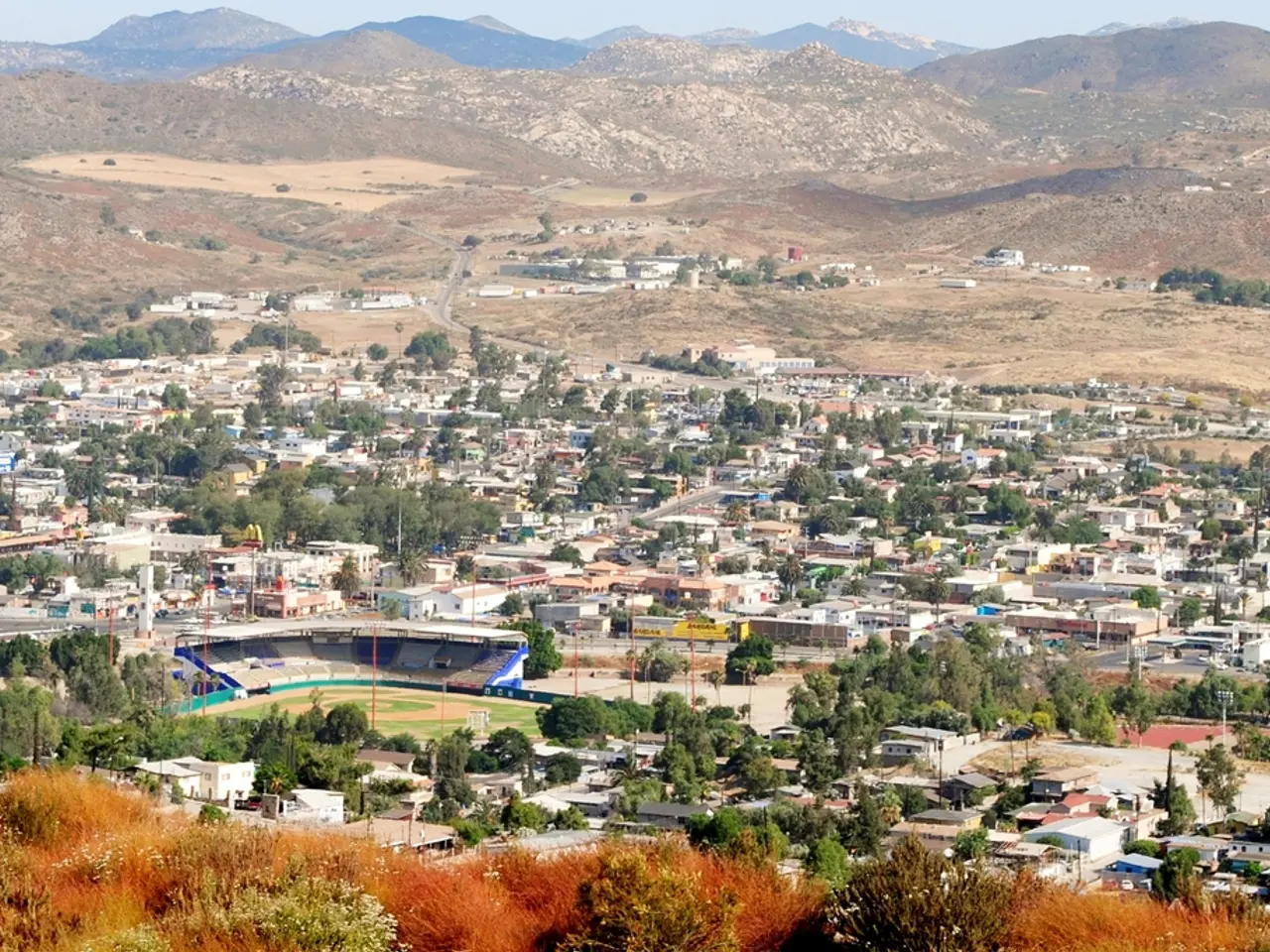Economic Impact and Return to School: Emotional Responses and Preparations
==============================================================================================
In the current political landscape, the Consumer Confidence Index is a topic of great interest. For those seeking a comprehensive understanding of the public's mind, the "Politics. Policy. Polling. Pop Culture" podcast offers valuable insights. Hosted by bipartisan pollsters Margie Omero and Kristen Soltis Anderson, this weekly show lifts the hood on the numbers driving the week's biggest stories in news, politics, tech, entertainment, and pop culture.
Recent episodes have delved into polling data from various universities across the country, such as the University of Massachusetts Lowell, Western New England University, and the University of New Hampshire. These posts provide a wealth of information on the current polling landscape around the nation. The podcast's website also offers related content, including guides on designing board game trivia nights, creating detective-style quizzes for expressing feelings, and measuring morale using employee satisfaction surveys.
One of the most intriguing discussions on the podcast has revolved around the economic outlook and its implications for the 2020 elections. Roughly half of Trump voters have expressed that they would at least partially blame him for a potential recession, according to Morning Consult. This sentiment was further supported by a NBC News / Wall Street Journal poll, which found pessimism among Americans despite current economic satisfaction.
In 2020, there was a notable shift in voter economic outlook, particularly among lower-income and poor voters. This shift had a significant impact on the 2020 Democratic primary and the general election polls. Poor and low-income Americans were identified as a large swing voting group whose economic outlook and sense of political representation affected the 2020 elections. Research indicates that while such voters generally support Democrats, they are motivated by candidates who speak to their economic realities and demonstrate commitment to policies that would improve their lives.
The economic outlook shift among key voter demographics impacted the 2020 Democratic race by emphasizing the importance of economic policy platforms and messaging. Candidates were pushed to focus on economic equity, healthcare, and social support programs to energize their base. The general election polls during that period reflected these concerns, with economic conditions and policy proposals being significant factors in voter preferences and candidate evaluations.
Evidence from subsequent years shows ongoing nuanced voter behavior related to economic outlooks and their political implications. For instance, slight shifts in poll weighting when accounting for past voting behaviors, particularly in economic condition ratings and political preferences, have been observed. Thus, the 2020 voter economic outlook shift underscored the critical role of economic messaging in electoral success and may explain variations in turnout and vote choice observed in that election cycle and subsequent ones.
Stay up-to-date on the latest polls around the country by following the "Politics. Policy. Polling. Pop Culture" podcast on Twitter and Facebook. The podcast's website also includes a "Share" section for easy sharing on Twitter, Reddit, Facebook, LinkedIn, and Email. For the latest 2020 General Election Polls, visit RealClear Politics.
- The "Politics. Policy. Polling. Pop Culture" podcast, hosted by Margie Omero and Kristen Soltis Anderson, provides valuable insights on the numbers driving the week's biggest stories in various sectors, including news, politics, tech, entertainment, and pop culture.
- The podcast delves into polling data from universities like the University of Massachusetts Lowell, Western New England University, and the University of New Hampshire, offering a wealth of information on the current polling landscape across the nation.
- Roughly half of Trump voters have expressed that they would at least partially blame him for a potential recession, according to Morning Consult, a sentiment further supported by a NBC News / Wall Street Journal poll.
- In 2020, there was a notable shift in voter economic outlook, particularly among lower-income and poor voters, which had a significant impact on the 2020 Democratic primary and general election polls.
- Economic policy platforms and messaging became important in the 2020 Democratic race, as candidates were pushed to focus on economic equity, healthcare, and social support programs to energize their base.
- Subsequent years have shown ongoing nuanced voter behavior related to economic outlooks and their political implications, with slight shifts in poll weighting observed when accounting for past voting behaviors.
- To stay informed about the latest polls, follow the "Politics. Policy. Polling. Pop Culture" podcast on Twitter and Facebook, and visit RealClear Politics for the 2020 General Election Polls.
- In addition to content related to politics and polling, the podcast's website offers guides on designing board game trivia nights, creating detective-style quizzes for expressing feelings, and measuring morale using employee satisfaction surveys, demonstrating its focus on education and self-development.




